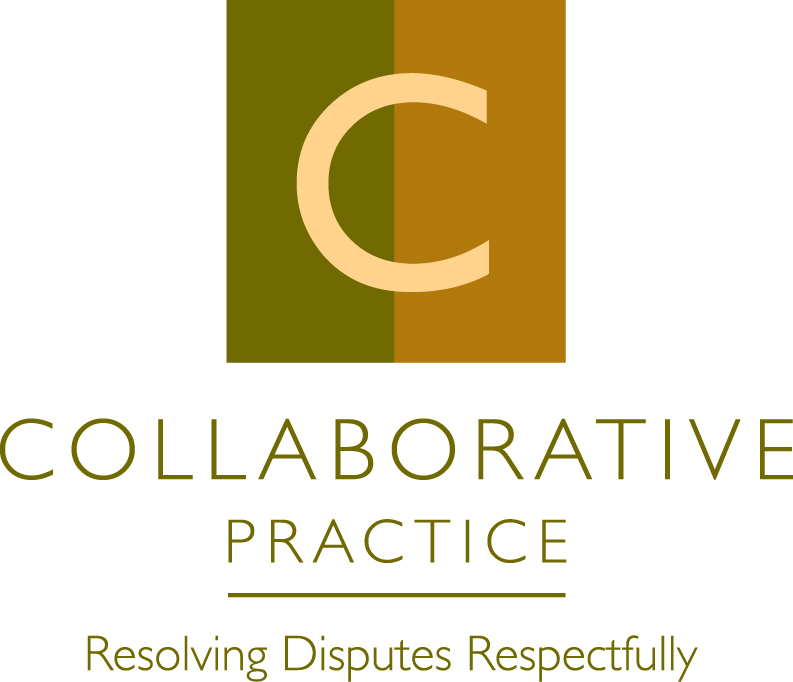The Collaborative Divorce Process
Like Mediation, Collaborative Divorce is a form of Alternative Dispute Resolution committed to reaching divorce settlements by agreement; without litigation.
There are times when a single neutral Mediator is not enough to gather and evaluate all the personal and financial facts that might be involved. Collaborative Divorce offers more resources and more powerful support for the couple than any single Mediator can.
Unlike Mediation, using the Collaborative Divorce process, each spouse has his or her own specially-trained Collaborative lawyer, at the spouses side at all times to advise and counsel to help the spouse to recognize and express his or her own concerns and priorities.

Goals and interests are recognized, facts are gathered, questions are answered, options are considered, and agreements are reached by the parties, each with Collaborative counsel, in sessions sitting around the meeting table.
Each spouse and each lawyer signs a Participation Agreement under which parties agree to financial transparency. From the very beginning, the process focuses and is committed to a positive outcome, minimizing conflict, and transitioning the intact family to the post-divorce family.
Moreover, while a spouse can terminate the process at any time and go to court, a new lawyer will be required for the litigation. Both Collaborative lawyers commit that they will not continue to represent their clients in divorce litigation. When the parties sit around the Collaborative Divorce negotiation table, each spouse knows that the other and the others counsel are committed to resolving all issues by agreement. The lawyer loses a client if the Collaborative Process fails.

Using the Collaborative Team approach, the spouses may each have or share a trained family specialist who with Collaborative counsel will develop each party’s ability to communicate, both during the divorce and thereafter. Each spouse becomes a more focused, more engaged participant in the negotiations. As needed, each spouse is taught how to improve communication both during the negotiations and after the divorce.
It is often true that one spouse is simply not ready to be divorced. The Family Specialist, a psychologist, or other licensed counselor sometimes called the “Coach,” can identify hot-button issues, facilitate discussion, keeping things calm and focused at the negotiation table, and when necessary, work with a spouse to move forward emotionally.
Some spouses are simply not prepared to sit at the table and express their interests, goals, concerns, and ideas. The marriage may simply not have worked that way. That spouse is not ready for Mediation. However, the Collaborative Team is specially trained to deal with a “power imbalance” (real or imagined) as well as concerns for the children.
Another member of the Collaborative Team can be the neutral financial specialist to facilitate the gathering of financial information, evaluate businesses and other assets and liabilities, work on budgets and projections, and consider tax implications. Routine and complex financial issues can be explained to the parties and resolved efficiently.

As with Mediation, stress and animosity are reduced. A safe environment is provided; the parties having their own lawyers at their side. As with Mediation, all the proceedings are conducted in private. Documents are not shared with outsiders. What happens at the Collaborative table, stays at the Collaborative table.
Again, even with complex and difficult sessions, Collaborative Divorce provides a much quicker outcome than litigation. With each Team member doing the work of their own specialty, the efficiencies and commitment to reach an agreement can keep costs down considerably.
Neil Cahn is not only thoroughly trained as a Collaborative Attorney, for more than 15 years he has been a staunch promotor of the Collaborative Process. He has served on the Board of Directors of the New York Association of Collaborative Professionals and has helped draft their protocols for best practices. He is also an active member of the International Academy of Collaborative Professionals and of Collaborative Divorce Resolutions.

While a firm believer in the benefits of settling conflict through cooperative means, Neil also knows how to succeed in arbitration and litigation. This balanced skill set allows him to bring the best of all practices into play to help parties find the right solution.
We invite you to contact the Law office of Neil Cahn, PLLC to learn more about the Collaborative Process and how we can help you find the right solutions.
